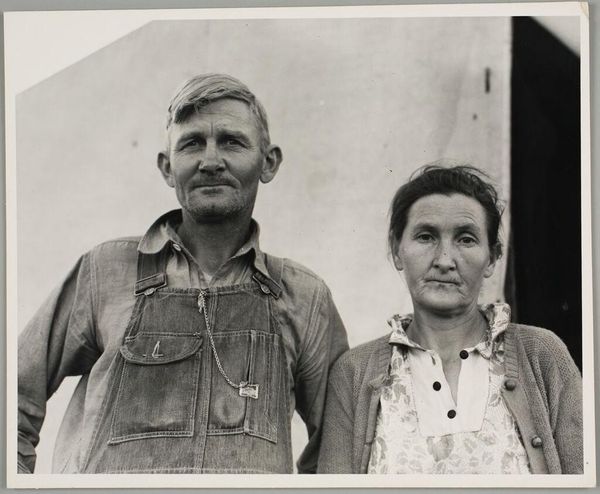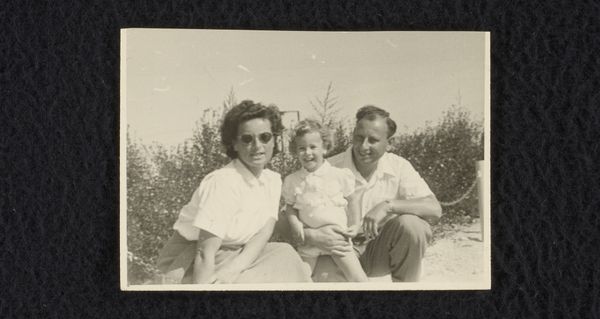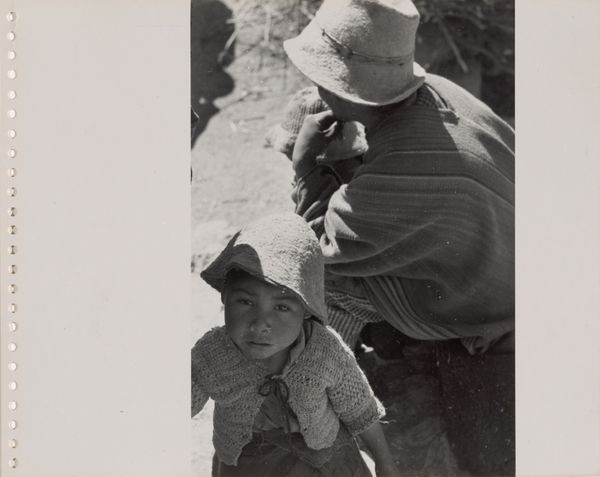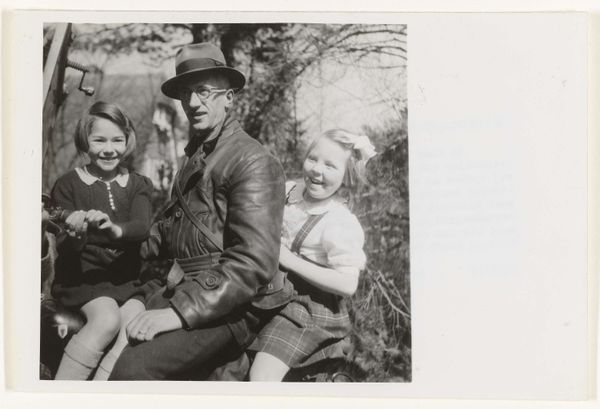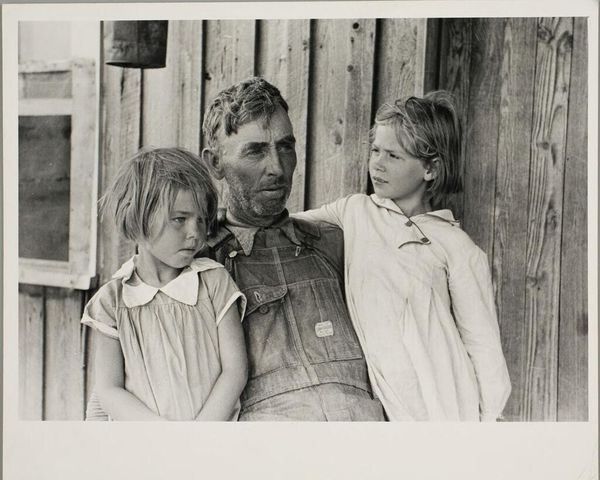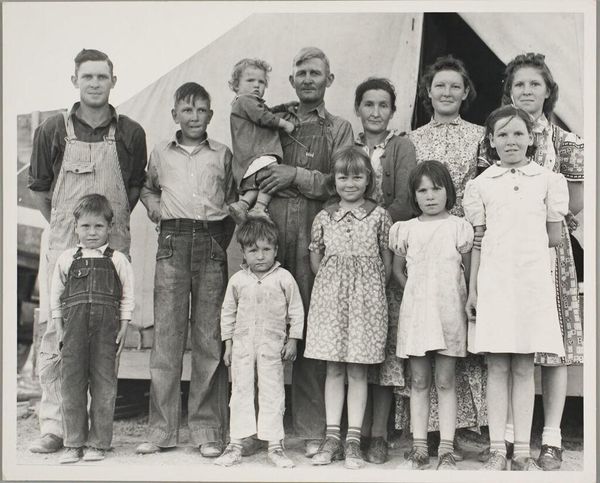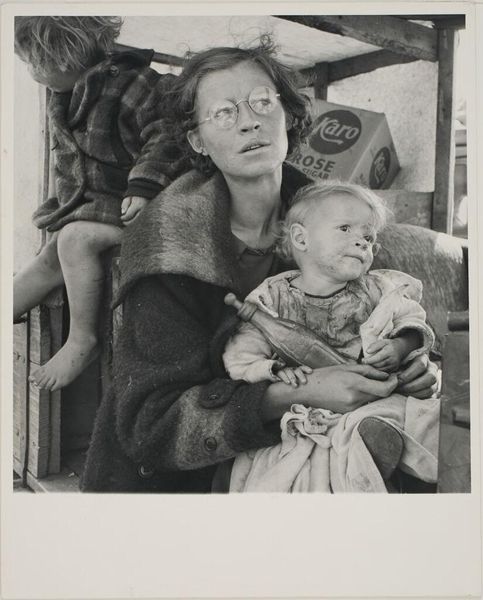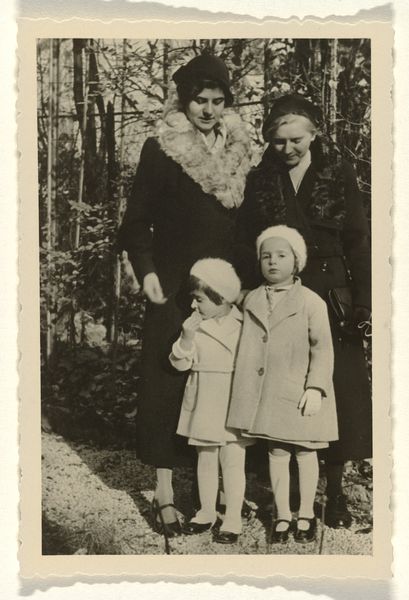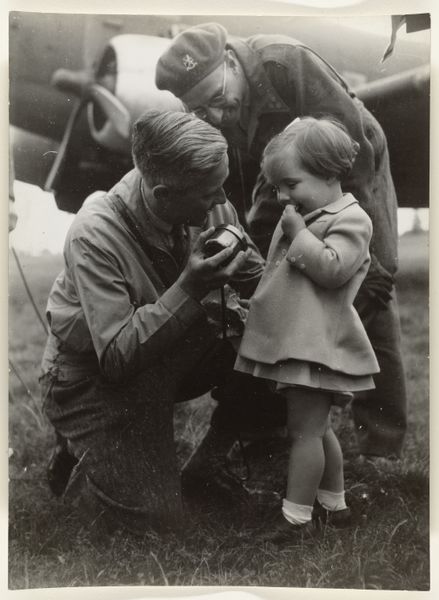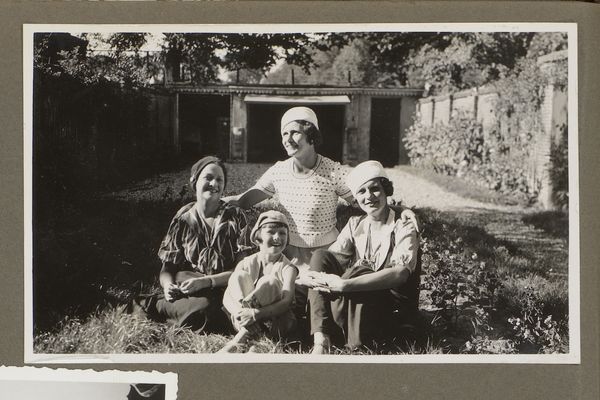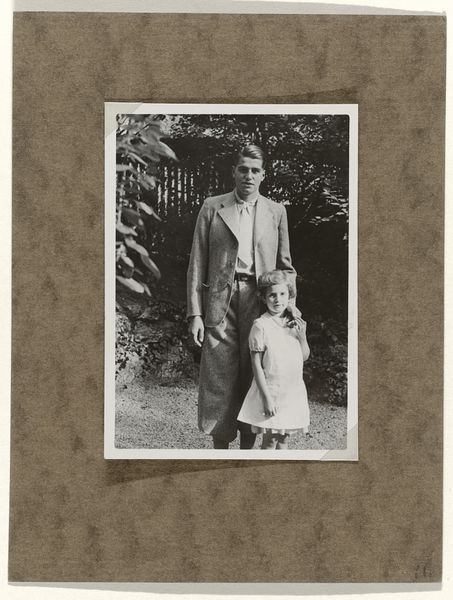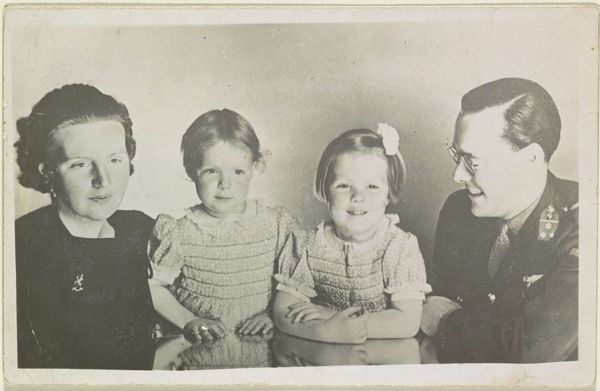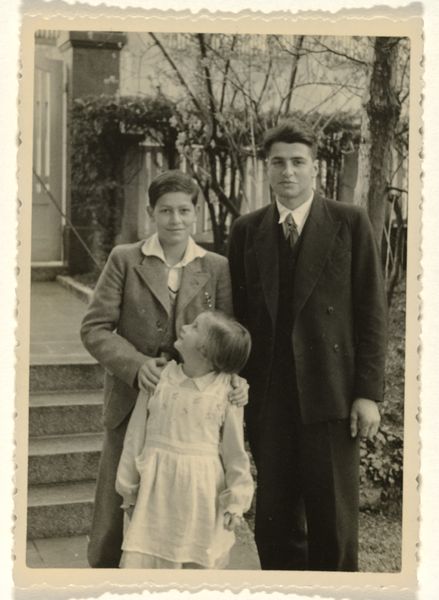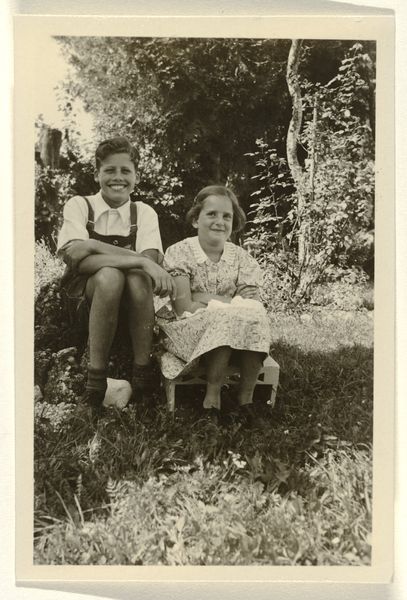
Spanish muskrat trapper, his wife and their adopted child by their marsh camp 1941
Copyright: CC0 1.0
Curator: This is Marion Post Wolcott's photograph, "Spanish muskrat trapper, his wife and their adopted child by their marsh camp," currently held at the Harvard Art Museums. What strikes you first about this image? Editor: It's tender, isn't it? Even through the starkness of the black and white, there's an undeniable warmth emanating from this family. I feel like I know them. Curator: Wolcott's work often explored themes of poverty and resilience, especially during the Depression era. This family's story, captured so intimately, speaks to that. Editor: Look at the child's boots—so practical and sturdy. And the way the man holds the child so securely, it's about more than just providing for them; it's about cherishing them. I love it. Curator: Indeed. Wolcott documented the lives of marginalized communities with empathy, prompting viewers to confront social realities. Editor: Absolutely. And the backdrop—that simple marsh camp—becomes a symbol of their resourcefulness. This image asks us to consider what truly makes a family. Curator: A powerful reminder that love and connection can flourish even in the harshest conditions. Editor: So true. This image will stay with me. I see it as a testament to the human spirit, as pure and simple as that.
Comments
No comments
Be the first to comment and join the conversation on the ultimate creative platform.
